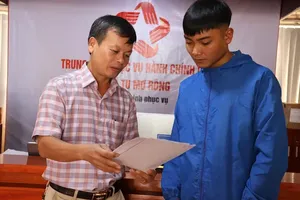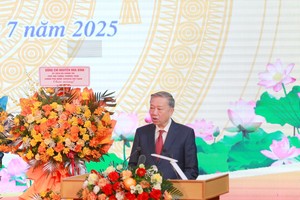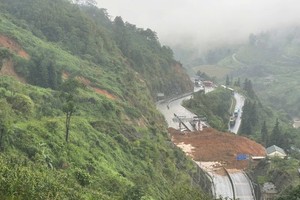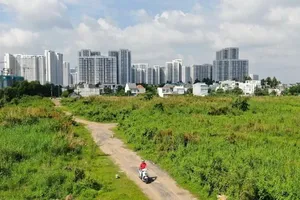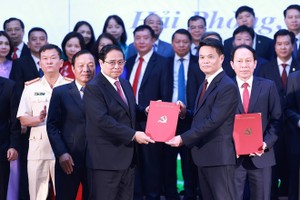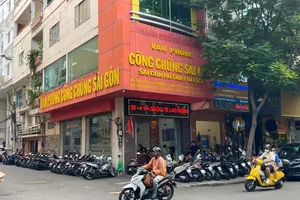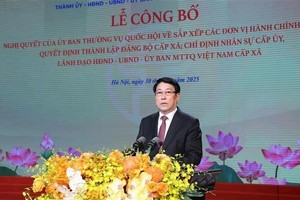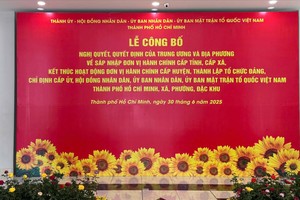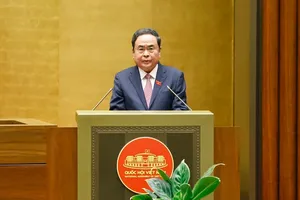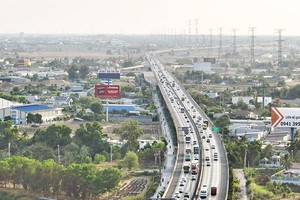The Ministry of Agriculture and Rural Development has recently organized an urgent meeting with local authorities in the nothern region to discuss measures coping with the long lasting drought, which might threaten hundreds of thousands hectares of winter-spring rice crop.
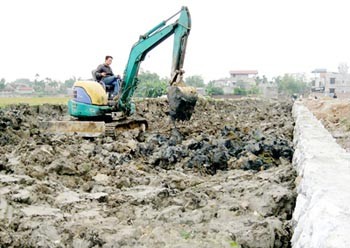
According to Minister Cao Duc Phat, the northern region is experiencing a serious drought as it has not rained for several consecutive months and floodwater from the upper reaches has not streamed down. Water level in reservoirs of many hydropower plants is just at 50 percent of their capacity.
Without rain, drought has chapped fields in a lot of provinces including Son La, Tuyen Quang, Hung Yen, Hai Duong and Phu Tho and Hanoi.
Farmers expressed concern as it is just about one to two month when the area begins the main rice production crop this year.
According to the Irrigation Department, if the drought continues, about 650,000 hectares of the winter spring crop will be dried up.
Meanwhile, the National Hydro Meteorological Forecasting Center said that it will not rain until the end of the year. As a result, water level on northern rivers will be 20-40 percent lower than that in previous years.
The drought will take place not only in the mountainous region but also in the Red River Delta’s center including Hai Duong, Nam Dinh, Hung Yen and Thai Binh provinces and Hanoi.
Moreover, the Rice cultivation would be more difficult with other three to four severe cold spells forecast to move in the north this winter, reducing average temperatures to below 15 degree Celsius.
Minister of Agriculture and Rural Development Cao Duc Phat instructed localities to preserve and save the water sources. In addition, they should guide farmers to postpone the winter-spring crop and grow plants able to grow up with water scarcity and salt instruction.
He also ordered authorized organs to closely monitor reservoirs and prevent them from releasing water to catch fish.
The Irrigation Department asked provinces to maintain pumping machines and dredge canals to cope with drought. The most important thing is that hydropower plants have to release water for cultivation in the lowlands.
The ministry and the Vietnam Electricity (EVN) has worked together about the water release schedule to balance demand of agricultural production and electric generation.
Accordingly, EVN would discharge water from Hoa Binh, Tuyen Quang and Thac Ba hydropower reservoirs in two stages for the coming rice crop.
The first time will take place from January 27 to February 2 while the other will be from February 8 to 14 with the total releasing water of 1.6 billion cubic meter.
